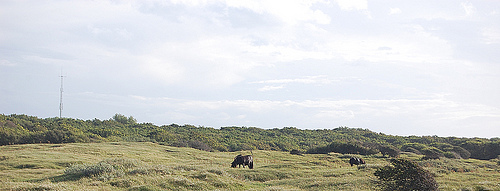Blog fodder for June 12th through June 15th:
- The Netherlands: Victory for Transgender Rights | Human Rights Watch – The law on transgender rights that the Dutch Senate approved on December 18, 2013, is an important step toward equality, Human Rights Watch said today. The new law will allow transgender people to change the gender marker in their official identity papers to their preferred gender. It does away with previous requirements for taking hormones and surgery, including irreversible sterilization, though it is a step short of complete personal autonomy for the decision.
- On Telling the Truth – People of Color in European Art History – I’m sick and tired of suffering in silence. I’m sick of “keeping things civil”, and I’m tired of giving the benefit of the doubt to people who mean me nothing but ill. There is real violence happening to myself and other bloggers for more reasons than that people do not like what we have to say…people take exception to who we are, how we speak, what we look like, who we call friend, and who we call family. No one is obligated to justify their existence.
- Holland’s World Cup win over Spain wasn’t the return of Total Football – Louis van Gaal has created something new – Telegraph – The 3-4-3 that Van Gaal played on Friday night was essentially a reactive formation designed to combat Spain’s dominant midfield. The wing-backs did not venture too far forward, and with midfielders Nigel De Jong and Jonathan de Guzman essentially screening the back three, Holland reverted to a 5-2-3, or even a 7-3, without the ball. And seeing as this was Spain, they were quite often without the ball.
- Maliki’s most solemn hour — The Arabist – Just days ago, ISIS pushed forward from its safehouses and camps in the Nineveh Governorate, which it had won control over in the past months, to take over the city of Mosul. It has attacked several other cities in northern Iraq as well, and disrupted the siege that federal forces in Iraq brought against it and its allies in Al Anbar Governorate this Spring. Mosul was living under a state of siege with the government resorting to an air bridge due to the danger ISIS ambushes posed to highway traffic. The group has for over a year now been following a strategic campaign it dubbed "Soldier's Harvest": the aim has been to retake the territories lost by al Qaeda-aligned jihadists during the final years of the U.S. Occupation by terrorizing the local authorities into quitting the fight. ISIS would then fill the resulting vacuum caused by their retreat. "This started in rural sections of Iraq such as the desert regions of Anbar and the Hamrin Mountains that stretch across Diyala and Salahadd
- Portugal indebted to Angola after economic reversal of fortune – "Portugal is in a tricky situation. It needs Angolan money and must also watch out for Portuguese residents in Angola," Filipe explains. About 100,000 Portuguese nationals currently live in the former colony. Much as with Brazil in the past, many young Portuguese, dogged by unemployment at home, see their future in Angola.
